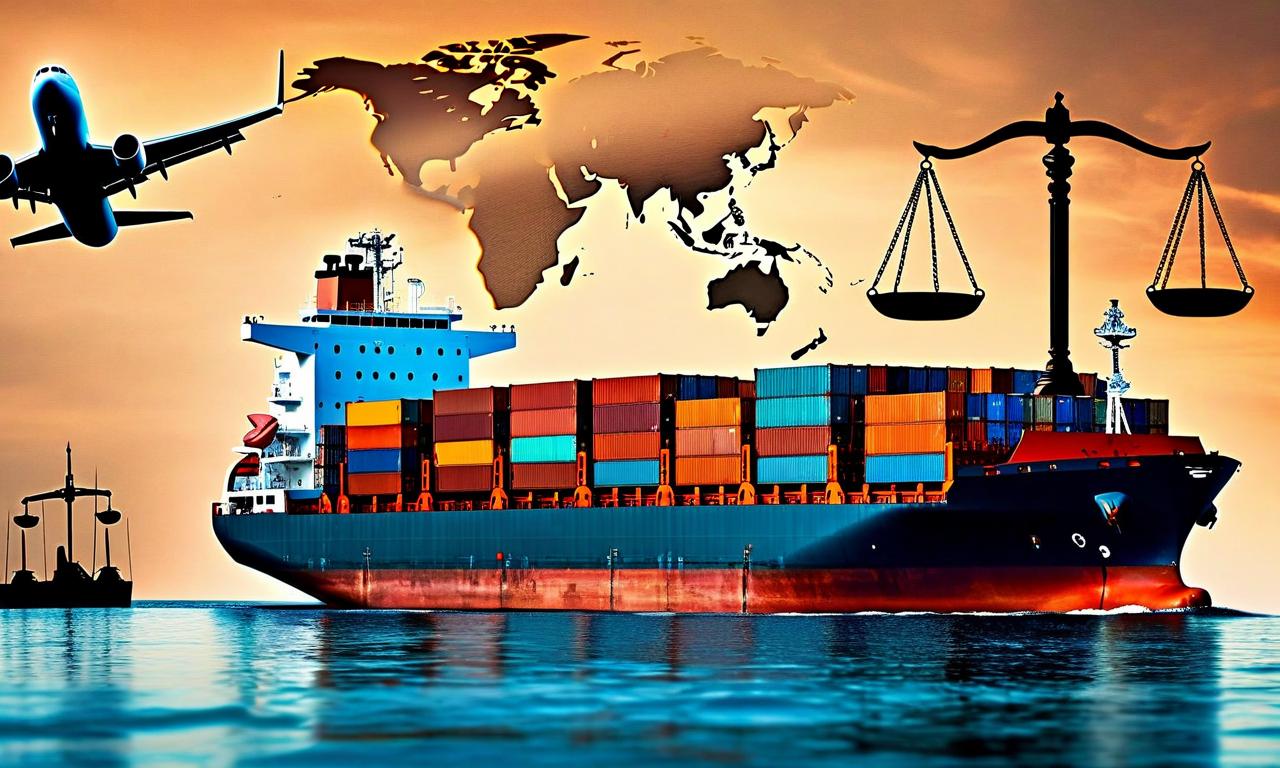India Faces 50% US Tariffs as Trade Dispute Escalates to Geopolitical Arena
India faces proposed 50% tariffs from the US, potentially linked to India's continued Russian oil purchases. Economist Swaminathan Aiyar suggests this move is more about geopolitics than trade. The tariffs could impact 2% of India's GDP, with market disruptions expected for 1-2 quarters. Aiyar questions India's aircraft purchases from the US given the tariffs and suggests potential retaliatory measures, including pushback on pharmaceutical intellectual property rights.

*this image is generated using AI for illustrative purposes only.
In a significant escalation of trade tensions, India is bracing for proposed 50% tariffs from the United States, a move that prominent economist Swaminathan Aiyar suggests has pushed the dispute beyond mere trade into the realm of foreign policy.
Geopolitical Motivations
Aiyar posits that the US's aggressive tariff stance is not solely about trade but is intrinsically linked to India's refusal to halt purchases of Russian crude oil. "This is about geopolitics rather than just trade," Aiyar stated, highlighting the complex interplay between economic measures and global political dynamics.
Market Impact and Economic Consequences
The economist anticipates potential short-term disruptions in Indian markets, possibly lasting one to two quarters. However, he believes markets will eventually stabilize and move past this period of volatility.
The proposed tariffs could have a substantial impact on India's economy. Aiyar noted that exports to the US account for nearly 2% of India's GDP, making the potential fallout significant. He cautioned that domestic demand might not be sufficient to fully offset such export losses.
Tariff Disparities and Strategic Implications
Aiyar drew attention to the apparent inconsistencies in the US tariff approach:
| Country | Tariff Rate |
|---|---|
| Pakistan | 19% |
| India | 50% |
| China | 200% |
This disparity in tariff rates raises questions about the strategic considerations behind the US trade policy.
Potential Retaliation and Strategic Purchases
The economist questioned the logic of India purchasing billions of dollars worth of US aircraft while facing punitive tariffs. "Why should India buy billions of dollars of American aircraft if it is to be treated as an enemy with 50% tariffs?" Aiyar asked, pointing out that Russia remains a reliable supplier of both crude oil and armaments to India.
Aiyar suggested that India could potentially retaliate, reminiscent of its actions during former President Trump's first term when it imposed tariffs on 28 American products.
Pharmaceutical Sector Concerns
In the critical area of pharmaceuticals, Aiyar advised against cutting generic drug supplies to the US. However, he proposed that India could push back on intellectual property rights and potentially ease compulsory licensing of US drugs as a form of measured response.
As this trade dispute unfolds, it's clear that the ramifications extend far beyond balance sheets and trade deficits. The situation underscores the intricate relationship between trade policy, geopolitical strategy, and global alliances in an increasingly complex international landscape.

























